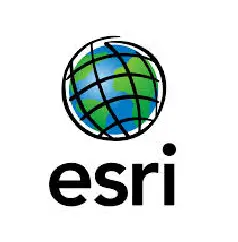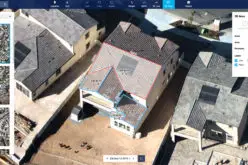Esri Joins International Partnership to Enhance Climate Resilience in Developing Countries

Colombia, Ethiopia, and Bangladesh to Harness ArcGIS Platform to Achieve Long-Term Sustainability
 Redlands, California—In a next phase of support of The White House Climate Action Plan, Esri will donate its best-of-breed GIS technology and counsel to help developing countries visualize, understand, and mitigate the impacts of climate change. Esri joins The White House and six other institutions in contributing $31 million worth of tools and training to boost climate resilience in Colombia, Ethiopia, and Bangladesh.
Redlands, California—In a next phase of support of The White House Climate Action Plan, Esri will donate its best-of-breed GIS technology and counsel to help developing countries visualize, understand, and mitigate the impacts of climate change. Esri joins The White House and six other institutions in contributing $31 million worth of tools and training to boost climate resilience in Colombia, Ethiopia, and Bangladesh.
Led by the U.S. Agency for International Development (USAID), the Public-Private Partnership on Climate Services for Resilient Development launched June 9 with an executive meeting at the U.S. Institute of Peace in Washington, DC.
“Climate change is a global issue that brings together government, utilities, non-governmental organizations, sophisticated cities, and developing countries,” said Esri president Jack Dangermond. “There is no single entity that can help developing countries plan for and adapt to climate change. But by uniting our resources, experience, and unique capabilities, this partnership can make a difference.”
As part of the company’s contribution, Esri will donate access to its online mapping and analysis collaboration platform, ArcGIS Online, to recipient nations. The platform—which is used by more than 350,000 organizations worldwide—provides access to foundational open datasets on topics such as elevation, ecological land units, and climate information. Patricia Cummens, government strategist at Esri, attended the partnership kickoff and demonstrated practical applications of Esri’s GIS technology.
“Climate change adds another challenge to developing countries that are already struggling with issues like poverty and conflict,” Cummens said. “Esri is committed to helping these nations achieve sustainability by equipping them with the power of GIS to make data actionable.”
Countries can use ArcGIS Online to publish, share, and mash up data to help leaders make informed decisions, Cummens said. For example, city planners can map which areas will be impacted when sea levels rise and plan accordingly. Farmers can explore mapping applications and swipe tools to compare climate models from two different years, evaluate anticipated rainfall, and plan which crops to plant.
Esri has established a collaborative resource portal on ArcGIS Online for Ethiopia and plans to do the same with Colombia and Bangladesh. Moving forward, Esri will assist with configuring and loading local data resources and launch each country’s ArcGIS Online portals. Esri will also conduct in-country briefing workshops with stakeholders and provide replicable climate information templates and tools, documented geospatial best practices, and methodology for conducting capabilities assessments.
The company’s participation in the Public-Private Partnership on Climate Data and Information for Resilient Development signifies Esri’s ongoing commitment to working with the Administration on climate resilience efforts. Esri recently launched its second comprehensive plan in support of the President’s Climate Data Initiative, including hosting the Human Health and Climate Change App Challenge and adding health open datasets to Esri’s Collaborative Resource Portal and Data.gov.
For more information, visit whitehouse.gov.











